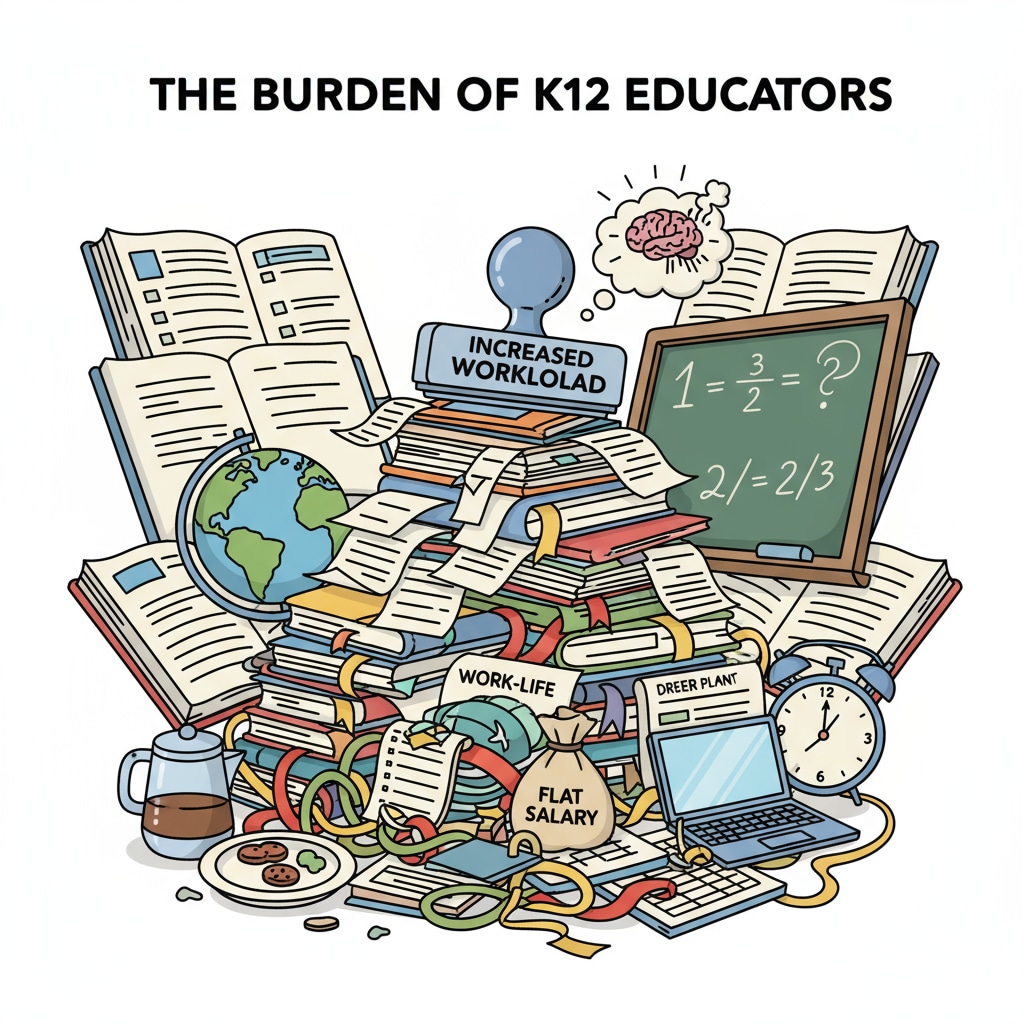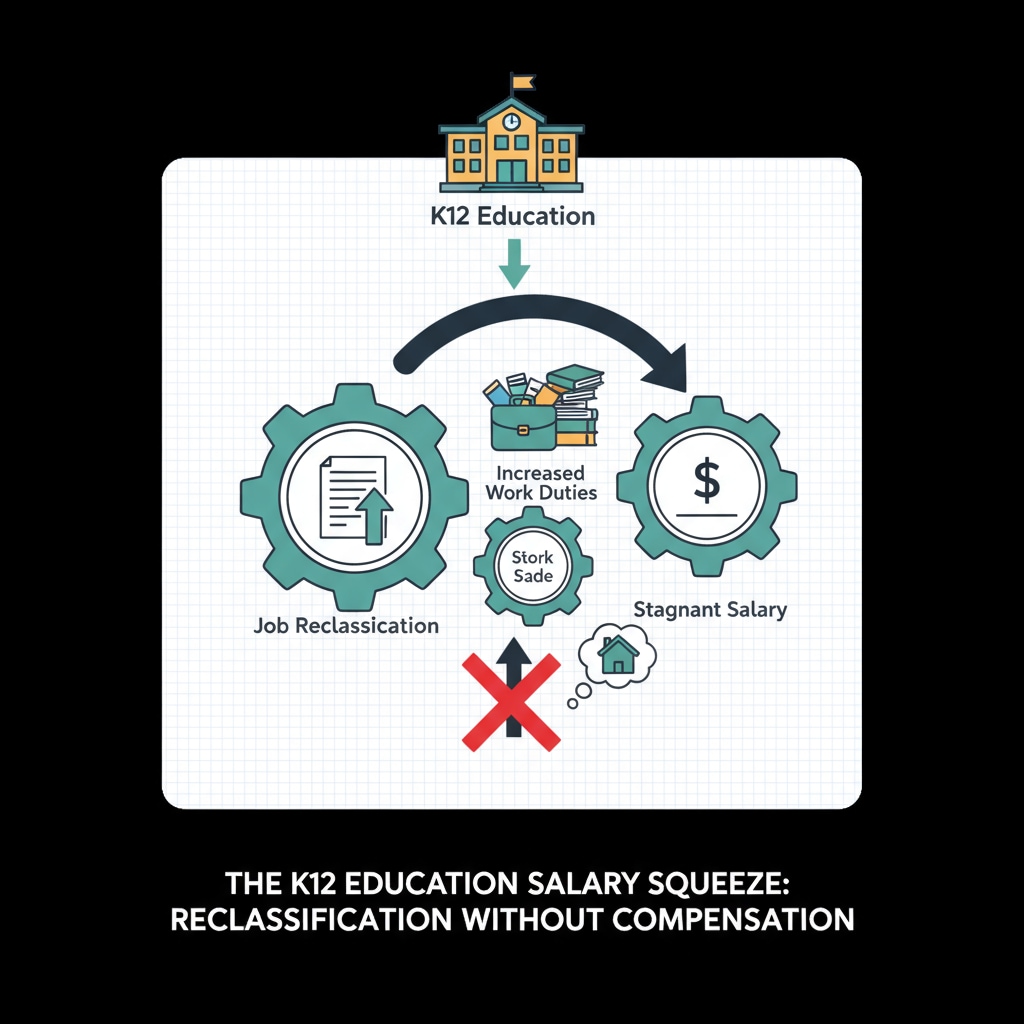Job reclassification, extra work duties, and salary negotiation are crucial aspects that K12 educators often grapple with. In many K12 educational institutions, educators frequently encounter a challenging situation: an increase in their work responsibilities without a corresponding rise in salary. This “work first, raise later” approach has become a significant hurdle in their career development.

The Impact of Uncompensated Extra Work Duties
The situation of taking on extra work duties without proper compensation has far-reaching implications for K12 educators. Firstly, it can lead to increased stress levels. Educators are already tasked with the important job of shaping young minds. When additional responsibilities such as curriculum development, after-school tutoring, or extra administrative tasks are piled on without a salary boost, the stress can become overwhelming. Stress management on APA reports that excessive stress can negatively impact both mental and physical health.
Secondly, it may cause job dissatisfaction. Educators may feel undervalued and unappreciated when they see their workload increasing while their pay remains the same. This can lead to a decrease in job motivation and productivity. For example, an educator who takes on extra duties of creating innovative teaching materials but receives no financial recognition may be less likely to continue putting in the extra effort.
Understanding Job Reclassification
Job reclassification is often related to the addition of extra work duties. When an educator’s role expands significantly, it might be appropriate for the institution to reclassify the position. However, this doesn’t always translate into a salary increase. Job reclassification should be based on a comprehensive evaluation of the new responsibilities, skills required, and the impact on the educator’s overall workload. Job evaluation on Wikipedia provides insights into how positions are typically evaluated for reclassification.
For instance, if an elementary school teacher starts taking on the role of a grade-level coordinator, which involves tasks like leading meetings, coordinating curriculum across classes, and handling parent complaints at a higher level, this new set of responsibilities may justify a job reclassification. But unfortunately, in many cases, the reclassification doesn’t come with a commensurate salary hike.

Salary Negotiation Strategies
When faced with the situation of increased work duties without a salary adjustment, K12 educators can employ several salary negotiation strategies. First and foremost, it’s essential to do thorough research. Educators should find out the salary ranges for similar positions in the region, taking into account factors like experience, qualifications, and the specific responsibilities of their new role. This information can serve as a strong foundation for their negotiation.
Secondly, they should approach the negotiation in a professional and positive manner. Instead of making demands, they can present the facts about their increased workload, the skills they’ve acquired, and how their contributions are benefiting the institution. For example, an educator could say, “Since taking on the additional duties of developing and implementing a new reading program, student performance in reading has improved significantly. I believe my work justifies a salary increase.”
Readability guidance: As seen above, we use short paragraphs to clearly present each point. The lists help summarize key ideas. The use of active voice is prioritized, and transition words like “firstly”, “secondly” are used to make the flow smooth.


